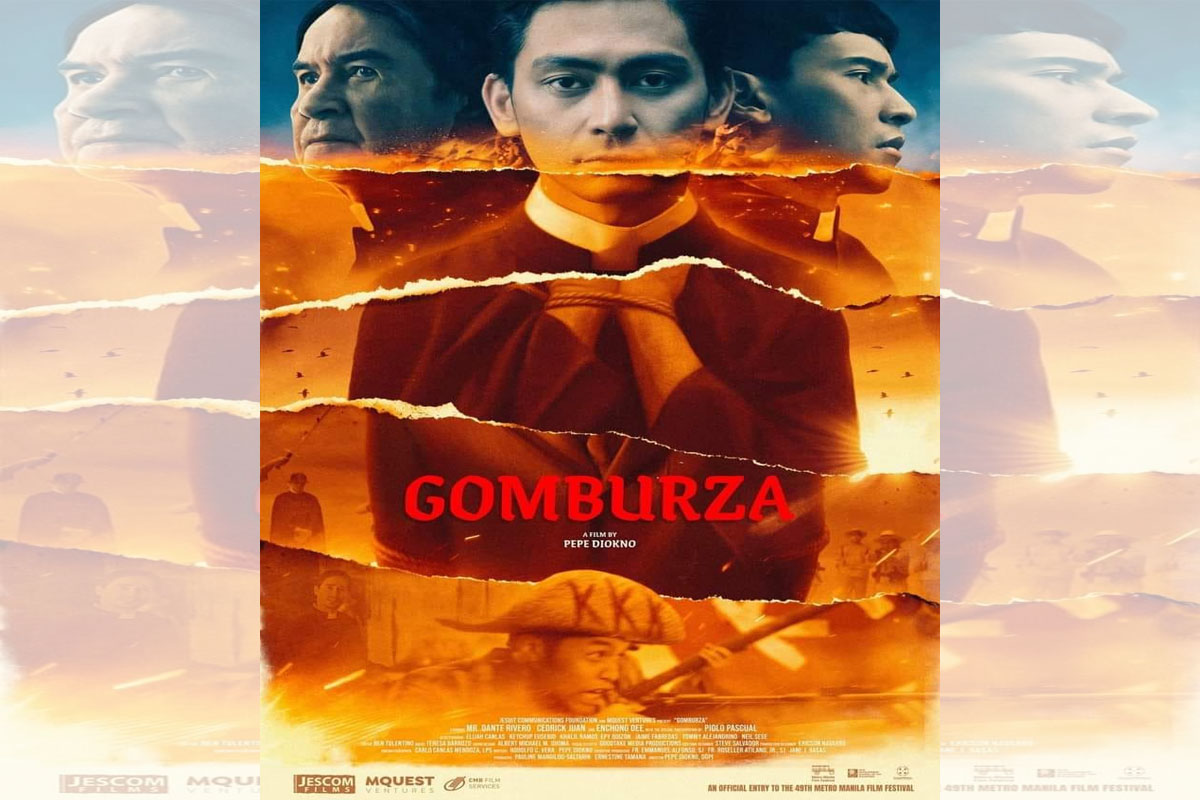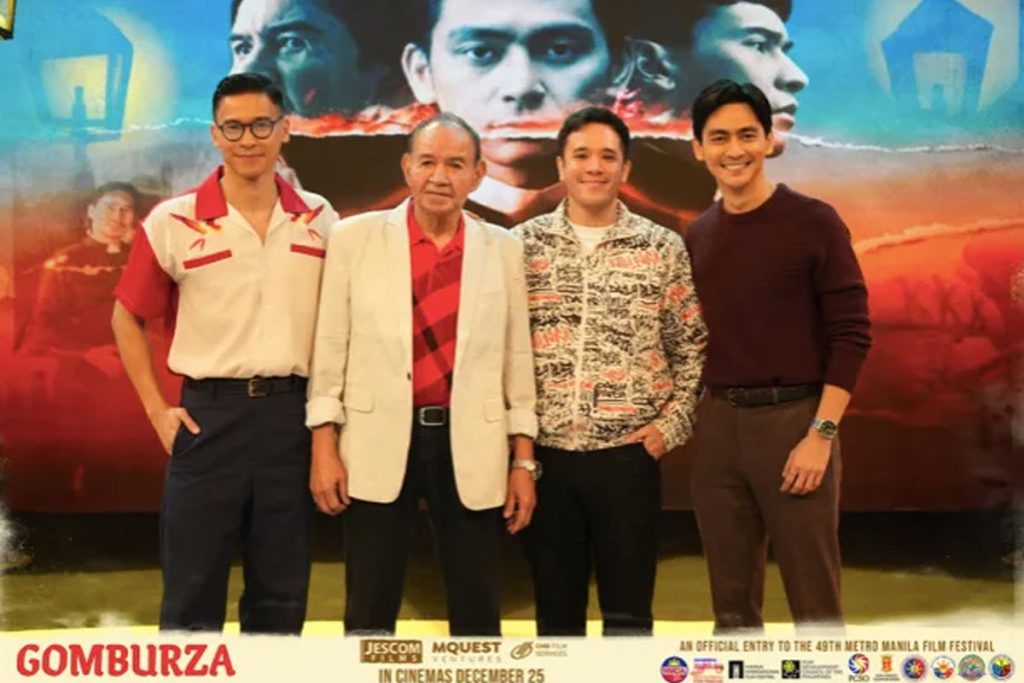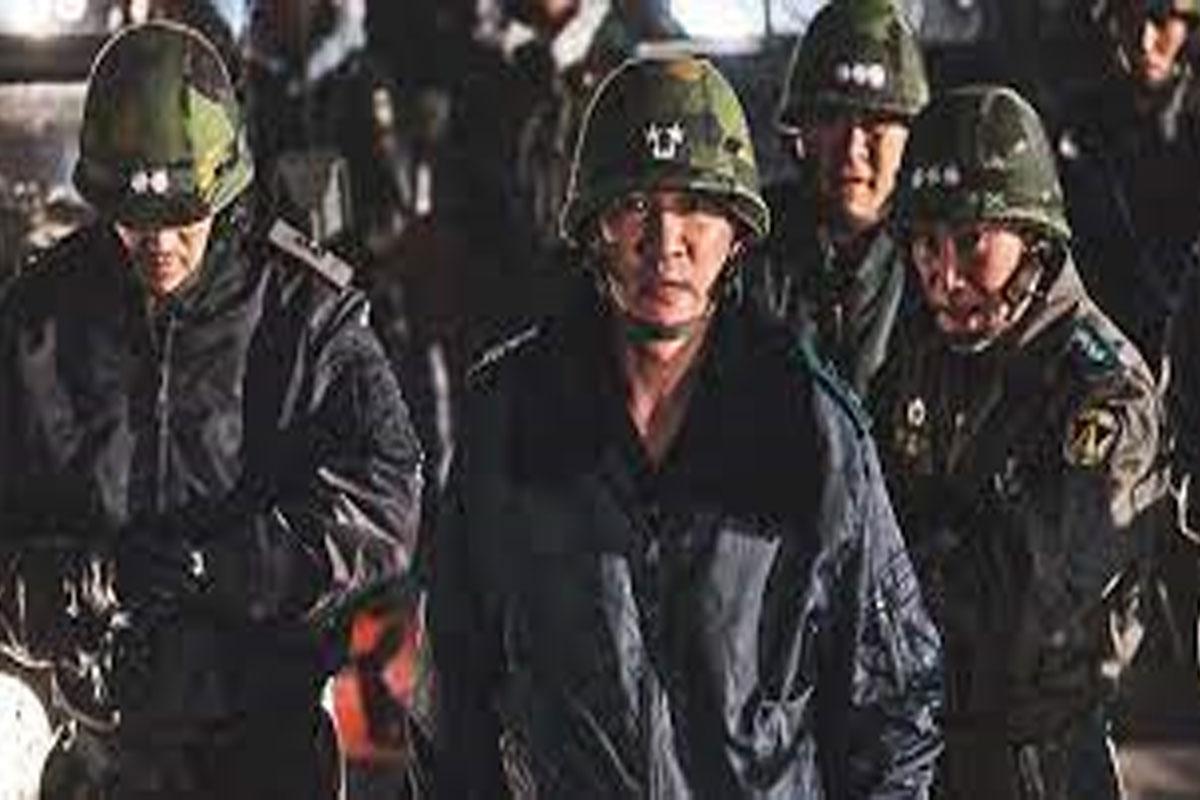
Review of well-produced historical film, ‘Gomburza’

 ‘GOMBURZA’ is a historical film on the three martyr priests Father Mariano Gomez, Jose Burgos and Jacinto Zamora who were accused of treason for inciting rebels in the Cavite Mutiny of 1872.
‘GOMBURZA’ is a historical film on the three martyr priests Father Mariano Gomez, Jose Burgos and Jacinto Zamora who were accused of treason for inciting rebels in the Cavite Mutiny of 1872.
The film shows that Fr. Burgos (Cedrick Juan) is the student of Fr. Pedro Pelaez (Piolo Pascual), an activist priest fighting for the secularization of Filipino priests so they’ll have equal rights with the Spanish friars who want to be in full control of the church.
Pelaez has a profound influence in Burgos, but he died in the destruction of the Manila Cathedral in an earthquake in 1863. Burgos continued the struggle for reforms in the church started by his mentor and among his bright students is Paciano Rizal (Elijah Canlas), older brother of Jose Rizal.
Burgos is a bright student and eventually got a doctorate degree in theology and canon law. The new governor general Carlos Maria de la Torre is friendly to Burgos and local priests and this is opposed by the ruling minority of Spanish friars who are Peninsulares (born in Spain) and frown on creoles (born in the Philippines.)
When de la Torre was replaced by the more rigid Governor General Rafael de Izquierdo, the Cavite Mutiny by local workers in the Cavite Naval Yard became the excuse needed by the Spanish authorities to persecute Burgos who they believe threaten the established order.
The three priests are arrested and after a hurried trial, they are found guilty of sedition. They are condemned to die by garrote or strangulation and executed at Bagumbayan on February 17, 1872.
The movie shows that the young Jose Rizal, about nine or ten years old then, personally witnessed how they were killed as his brother Paciano took him then from Calamba to Bagumbayan. We don’t know how truthful or accurate this is, but it’s clear that the experience had a profound effect on Rizal, who’d later be our national hero who dedicated his novel “El Filibusterismo” to the memory of the martyred priests.
The movie is well-produced, with great production values, design, costumes. We just wished some very dark scenes are more well lighted as you sometimes have to squint to fully grasp what’s happening on screen.
Director Pepe Diokno and co-writer did a good job in chronicling the plight of the priests in a factual manner that can easily be understood by today’s viewers. It fulfills its intention to help us understand more about our historical past and appreciate the heroism of our patriots that led to the dawn of Philippine nationalism.
“Gomburza” would certainly be a great teaching aid in history classes. We only wish that it were more emotionally involving. Maybe the film was very authentic in presenting all the events that transpired between the Filipino priests and the oppressive Spanish authorities, in which case, it is good hagiography.
But the film medium is not just about teaching the audience historical facts but also drawing the viewer in a more ardent and compelling way to the stories that it is telling.
It would have appealed more to the viewer’s heart and emotions if they gave a bit more back story to the characters, for us to really feel them so we could root more for them. As it is, we know very little of their personal accounts.
We’ve read that Burgos is an Ilocano from Vigan and his dad is a Spanish officer while his mom is an Ilocana. So how did his family react when he was sentenced to die?
Here, only Enchong Dee as Fr. Zamora is shown with some kind of human frailty, as he is fond of gambling and playing the panggingue. It is said that he lost his mind after they were condemned, but it’s not dwelt on here.
It would have been more heartfelt and impassioned for the viewer if there’s a scene showing Burgos having an intimate conversation with Gomez about their fate, dealing with concepts of Filipino identity and conscience, or if they have any regrets or misgivings about their actions. It would also have been a great acting highlight for the actors playing them.
It would surely have been a defining moment for them and would make for a more affecting performance and impactful viewing. One of the best historical films we saw is “A Man for All Seasons” about St. Thomas More who defied Henry VIII. It’s totally riveting as it is not just a great character study of a man with solid principles, but also a thought provoking history lesson told in a fervent but very entertaining way.
























